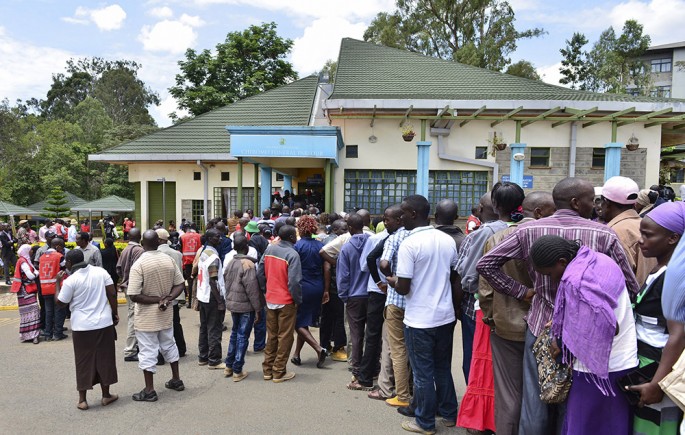Authorities in Kenya have arrested five people linking with the attack on a Kenyan university that left nearly 150 dead and scores injured.
Joseph Nkaissery, interior minister, said that the arrests were made just recently. The suspects were identified as Al Shabaab gunmen who were masked and strapped with explosives late afternoon on Thursday when they stormed the Garissa University College campus.
Some of the students were sleeping when the gunmen stormed in the university throwing grenades and fired automatic rifles, ABC News reported. Dozens were already shot dead when the men set the Muslims free and holding others hostage.
According to The Telegraph, Nkaissery told the reporters that the Kenya government will not be daunted by the terrorists who had just killed innocent people as a way to humiliate the government. He said that the government is determined to fight back. "I am confident we shall win this war against our enemies," he added.
Concerns have been raised regarding the intelligence's failure to prevent the attack, despite the warning that was given to the students as they were not protected from the gunmen. New reports have emerged that there could be another attack in the next couple of days.
Meanwhile, campus cleanup continues and the emergency workers have set about collecting bodies still sitting around the campus. The Kenyan soldiers on the other hand patrol the university and the surrounding areas.
Nkaissery said that the security officers are now mopping up the college to ensure its safety to the students when they come back to secure their documents and other properties. He added that the college had "closed indefinitely."
The survivors were able to narrate how the gunmen taunted the students before killing them. The men also forced the students to call their parents to urge them to call for Kenyan troops to leave Somalia, and killing them afterwards.
Most of the bodies were taken to Nairobi-the Kenyan capital-for formal identification, after local hospital facilities in Garissa reached its maximum capacity due to the number of dead.
Director of the Somalia Heritage Institute for Policy Studies Abdirashid Hashi said that the mass killing was meant to thump the heart of Kenya's society and economy.



























